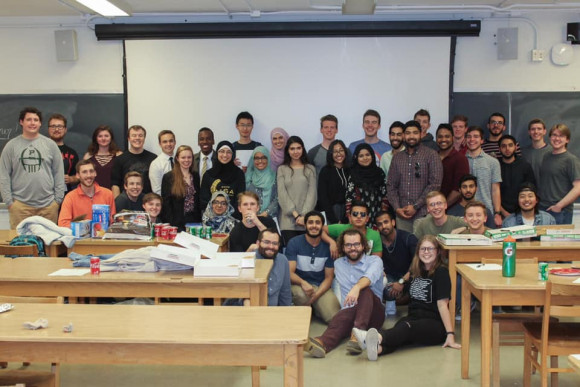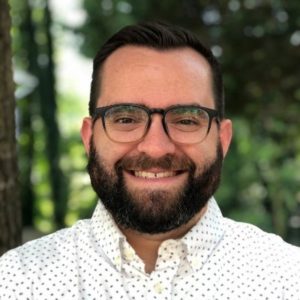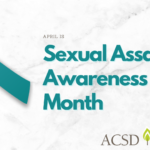In March 2019, the Foundation for Ethnic Understanding reported that “Evangelical Christian and Muslim relations is the greatest interreligious challenge in America today” (p. 1). In a national online survey, they discovered that only 22% of Evangelicals regularly interact with Muslims and believe those interactions have led to a better understanding between their groups. Sadly, 62% of Evangelicals reported that there is anti-Muslim sentiment in their own community.
As an evangelical, I am convinced that the credibility of our Gospel witness in America is tied up with how we treat Muslims. When we treat Muslims badly, including Muslim immigrants, we reveal a truncated anthropology that denies Muslims the Imago Dei. Furthermore, the integrity and our public witness is compromised; headlines like “Most White Evangelicals Don’t Believe Muslims Belong in America” speak more to the nationalism festering in our communities than our hopes to lead others to Jesus. Christian higher education seems to be recognizing the urgency. In 2019, my organization Neighborly Faith will host conferences at several Christian colleges, including Wheaton College and Gordon College (MA). We have encountered nothing but enthusiasm and support from students and staff, who are eager to learn what Christian faithfulness looks like in spaces marked by religious pluralism. At these conferences, some will have the chance to meet a Muslim for the very first time.
Little excites me more than getting evangelicals in the same room with Muslims. Why? Because studies show that when we actually get to know someone from a group that we have reservations about, our attitudes toward them improve and our misconceptions are resolved. Historically, evangelicals have theorized interreligious engagement into the ground. So much so, that while books, toolkits, and training on “reaching Muslims” seem normal, spending quality time with Muslims seems strange. I am convinced that evangelicals don’t need one more class on Muslim arguments against the Trinity. Though this is incredibly important to understand (there’s a terrific chapter on the matter in this book), I have found that for many Christians these opportunities are more about pleasing an intellectual itch than preparing to love Muslims. More than satisfying our own curiosity, what we need most is proximity to Muslims. How do we expect to have conversations about the Trinity if we’re not having…conversations?
In March 2019, I organized a dinner for InterVarsity (IV) and the Muslim Student Association (MSA) at NC State University where I am a PhD student in higher education. I did this as part of my work with Neighborly Faith, an organization dedicated to helping evangelicals to be good neighbors to people of other faiths. 50+ students came to the dinner. Positive feedback has been pouring in from both groups, who have already committed to co-hosting another dinner next semester. One student remarked that it was “the best event that I have participated in all year, hands down.” As we imagine new ways of going about our work, I wanted to share how our dinner was conceptualized and executed, in hopes that readers would be empowered to organize similar opportunities on their campus for evangelical and Muslim students.
FIRST, I SPOKE TO INTERVARSITY STUDENTS FOR 20 MINUTES ABOUT THE PURPOSE AND THE IMPORTANCE OF EVANGELICAL-MUSLIM FRIENDSHIP.
I centered my comments on the parable of the Good Samaritan, which Jesus shared after being asked by an expert in the law, “Who is my neighbor?” Strikingly, Jesus chooses to tell a story about loving across religious differences. I emphasized the benevolence with which the Samaritan loved the man left for dead in the road. He didn’t just transport the man to safety; he ensured that the man’s needs would be fully taken care of into the future. I told the group that it isn’t enough that we merely don’t hate Muslims or don’t actively treat them badly; simply abstaining from hate is not what makes us Christians. Rather, to fulfill the spirit of Jesus’ parable, we need to go above and beyond what Muslims are expecting from us. We need to be generous and hospitable to them. I left the group with a challenge to consider joining the Muslim Student Association for dinner. I later found out that they responded enthusiastically.
SECOND, I ORGANIZED A PLANNING MEETING FOR THE CAMPUS DIRECTOR OF INTERVARSITY AND TWO LEADERS FROM THE MUSLIM STUDENT ASSOCIATION.
We shared coffee for 30 minutes in the university student union. After fielding some casual get-to-know-you questions, we entered into an open discussion about our intentions and hopes for gathering the two groups together. This included providing a space to learn more about each other’s beliefs and where new friendships could begin to form. Then, we dialogued around a couple of questions about Christianity/Islam, and we all agreed on the importance of balancing our perceived commonalities with our very real differences.
THIRD, THE IV DIRECTOR AND I AGREED THAT WE SHOULD COVER THE COSTS OF THE MAIN ENTREE.
We felt that this would resonate with the generosity of the Good Samaritan. We asked MSA to simply bring a light dessert and drinks. They ended up bringing baklava and Krispy Kreme donuts, which we did not complain about.
FOURTH, AT THE BEGINNING OF THE DINNER, WE (LEADERS) ACKNOWLEDGED THE EXCLUSIVIST AND EVANGELISTIC NATURE OF OUR FAITH TRADITIONS.
The MSA president spoke first: “If it were up to me, everyone here would choose to become a Muslim tonight.” I jumped in immediately after: “And if it were up to me, everyone in this room would be baptized tonight!” The whole room burst into laughter. We then agreed that God, as we understand him, is the only one who can change hearts. Therefore, we could relax any of these unspoken hopes or expectations; the dinner was an opportunity to share casual conversation and seek some understanding of each other’s beliefs. The IV Director then laid out two simple ground rules: be humble and respectful and be a good listener. This was intentional; we agreed that too many ground rules for dialogue can actually undermine the potential for transformative conversations. Given that the dinner included two faith traditions that are accustomed to censoring their beliefs on campus, it was important that we emphasized that exclusive truth claims could be expressed safely in the space.
FIFTH, WE ORGANIZED SEVERAL ACTIVITIES TO KEEP CONVERSATIONS FRESH AND TO ENCOURAGE INTERACTIONS BETWEEN AS MANY PEOPLE AS POSSIBLE.
This included ice-breaker questions, a human scavenger hunt, a group picture, and eventually breaking up into new groups to field questions about our beliefs. These questions included:
- How were you first introduced to your religion?
- How do your beliefs affect your life on campus?
- What is your favorite thing about your religion?
- What is one of your favorite scripture passages?
There were also moments of spontaneity that we adjusted to as gracefully as possible. For example, two Latter-Day Saint missionaries walked in, donning their white shirts, ties, and nametags. We welcomed them with open arms. Toward the end of the evening, the MSA President asked if it would be okay for them to perform their evening prayer at the front of the room. The IV director was agreeable, and he encouraged his group to stay silent and/or pray quietly if they felt led. After the prayer, he asked by show of hands how many members of IV had never observed Muslim prayer before, and about a dozen hands went up. He then thanked the MSA President for affording IV the opportunity to observe.
SIXTH, WE ENCOURAGED DISCUSSION ABOUT HOW IV AND MSA COULD WORK TOGETHER FOR THE GOOD OF THE UNIVERSITY AND THE LOCAL COMMUNITY.
As it turns out, one member of MSA in attendance was the director of a local organization helping refugee high school students to learn English and adjust to life in America. He presented a few opportunities for members of both groups to contribute. We plan to follow up about this opportunity in a few weeks.
I was recently asked if the dinner would qualify as an “interfaith” event. For a few seconds, I froze. On the one hand, I’m not totally sure what else you might call it. On the other hand, I am cognizant of the baggage that the word “interfaith” carries among mainstream evangelicals, and oftentimes, interfaith initiatives function in ways that reinforce their concerns. For that reason, when pitching the opportunity to InterVarsity, I avoided using the word. In a way, I am trying to blaze a new trail in this space that resonates with evangelicals in ways that traditional interfaith initiatives typically don’t.
For example, I avoid subtle cues suggesting that exclusive truth claims are a liability that must be tempered, or some lesser stage of spiritual development or critical thinking. Furthermore, instead of hammering on the deficiencies of evangelical beliefs and practices, I take a more positive approach. I believe that most evangelical students already possess the tools they need to be great conversation partners and friends. What they need, more than anything, are the opportunities to deploy their aspirations to learn and love.
Finally, instead of overburdening attendees with extensive ground rules for dialogue, I give students more credit for their ability to navigate complex conversations with people they disagree with. At the dinner, I overheard conversations that I’m not accustomed to hearing in typical interfaith spaces: conversations of deep disagreement. They were being handled charitably by all. Had I tried to mediate, I may have squashed a critical opportunity to have a productive exchange around competing ideas.
If I can be of help to you as you consider organizing a similar event on your campus, please don’t hesitate to reach out to me at kevin@neighborlyfaith.org.







